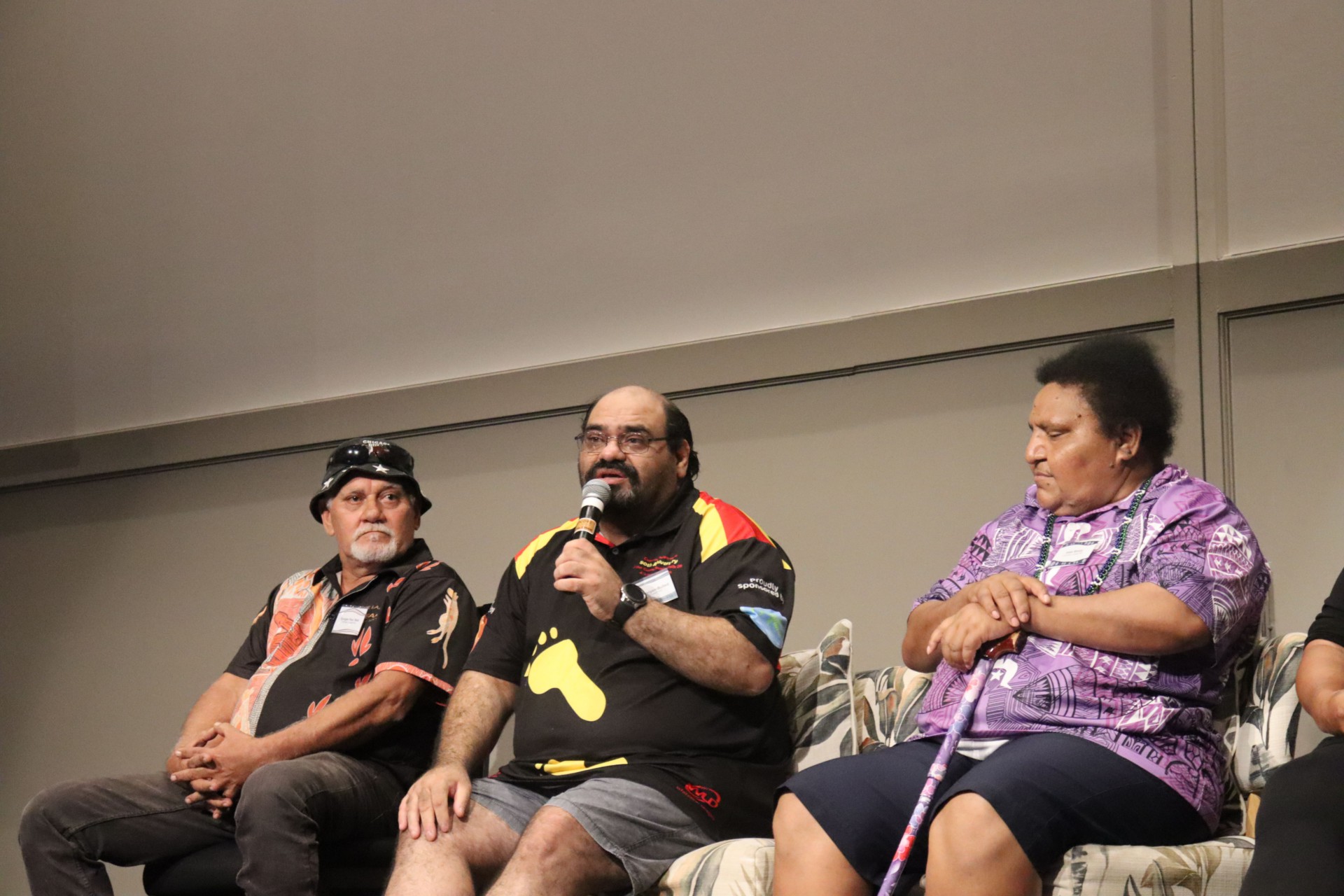
More than 120 Indigenous traditional owners representing more than forty First People’s groups met with scientists in Cairns recently as part of the National First People’s Gathering on Climate Change, an initiative funded by the Federal Government with coordination led by CSIRO.
Held over five days, The Gathering represents the latest in a series of workshops and meetings held over recent years to strengthen dialogue between scientists and Traditional Owners on climate change and to recognise the experiences of First Nation custodians that reach back over thousands of generations.
The Gathering was coordinated by The Earth Systems and Climate Change (ESCC) Hub; led by CSIRO and funded by the Federal Government through the National Environmental Science Program (NESP).
ESCC Hub partners include the Bureau of Meteorology, the Australian National University, Monash University, the University of Melbourne, the University of New South Wales and the University of Tasmania.
The Cairns event, held on the lands of the Gimuy Walubara Yidinji and the Yirrganydji people, built on the National Indigenous Climate Dialogue Workshop which was conducted on Yorta Yorta country in 2018.
“From changing weather patterns, to shifts in natural ecosystems, climate change is a clear and present threat to our people and our culture,” Yirrganydji Traditional Owner, Gavin Singleton said.
“We want to be included in the climate policy, not just like ticking the box for an environmental program,” The Gathering’s co-chair and Malgana woman from Gatharagudu in Western Australia, Bianca McNeair said.
CSIRO Climate Scientist and ESCC Hub Leader David Karoly said The Gathering was the result of a process co-designed by First Peoples.
“The Gathering is an Indigenous-led, co-designed process that has been developed with a First Peoples-led Steering Committee of ten Traditional Owners and the ESCC Hub.
“It’s all about First Peoples having a genuine seat at the table, and the way we have designed this event reflects just that,” Dr Karoly said.
Through the work of the steering committee and the participants of the Gathering, several key themes have been identified including marine heatwaves, rising sea levels, bushfires and land heatwaves.
Participants will now develop a national statement that will return to constituent communities for the information and awareness of First Peoples, ahead of the development of a larger report from The Gathering.
“Aboriginal people manage 80 per cent of the world’s biodiversity. We’re in this position where we can make a big change, but we need to be listened to,” Ms McNeair said.
“What we really need is to be able to get to the top levels of government and be heard and be included in that discussion and developing those climate change policies.”
Dr Karoly said that many First Peoples were already using climate change science to care for Country and communities.
“There is an immense opportunity for climate scientists and Traditional Owners to work together. The Gathering will build strong relationships and forge positive paths forward to tackle common climate challenges,” Karoly said.
